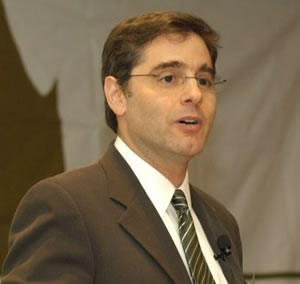
Rules meant to prevent internet service providers from discriminating against online content might not be the safeguard that schools and colleges were hoping for, as net-neutrality supporters believe the Federal Communication Commission’s new policy might lead to “bidding wars” that could leave smaller campuses without access to a high-speed web connection.
The FCC passed the rules, 3-2, with all three of the commission’s Democrats voting for the measure and both Republicans voting against it.
Republican opponents of net neutrality have long argued that the rules constitute unnecessary regulations for web providers and internet users.
The regulations prohibit unreasonable network discrimination—a category that FCC officials say most likely would include services that favor traffic from the broadband providers themselves or traffic from business partners that can pay for priority.
More recent news on net neutrality…
Opinion: Corporate policy making would result in a net loss
Critics urge FCC to forget net neutrality
The rules do, however, leave the door open for broadband providers to experiment with routing traffic from specialized services such as smart grids and home security systems over dedicated networks, as long as these services are separate from the public internet.
Steven Worona, director of policy and network programs for the education-technology organization EDUCAUSE, said the net-neutrality rules contain loopholes that one day could lead major internet providers to limit access to campuses that can’t pay premium prices for web service.
“If the rules are not effective in maintaining an open internet, the worst case scenario is that a bidding war develops to get access to high speed,” Worona said. “In that type of situation, the deepest pockets have the best chance of accessing their end users. … In that case, it wouldn’t be surprising if smaller schools have more trouble than larger universities.”
Campus technologists should remain “vigilant” of signs that web providers are using loopholes in the net-neutrality rules, Worona said.
“There’s potential for great mischief, and we should watch carefully to see if that mischief is taking root,” he said. “It is unfortunate that they didn’t do more.”
Only 16 percent of the 3,439 community college campuses in the U.S. have access to the kind of high-speed internet service that is available at more than 90 percent of research universities, according to statistics released last year by the FCC.
The FCC regulations prohibit wireless carriers from blocking access to any websites or competing applications such as internet calling services on mobile devices, and the new rules require carriers to disclose their network management practices, too.
But the rules give wireless companies more leeway to manage data traffic, because wireless systems have more bandwidth constraints than wired networks.
FCC Chairman Julius Genachowski said the regulations will prohibit broadband providers from abusing their control over the on-ramps that consumers use to get onto the internet. He said the companies won’t be able to determine where their customers can go and what they can do online.
 “Today, for the first time, we are adopting rules to preserve basic internet values,” Genachowski said. “For the first time, we’ll have enforceable rules of the road to preserve internet freedom and openness.”
“Today, for the first time, we are adopting rules to preserve basic internet values,” Genachowski said. “For the first time, we’ll have enforceable rules of the road to preserve internet freedom and openness.”
Public-interest groups said the FCC and the Obama administration have missed an opportunity to establish long-lasting rules that would prevent corporations from controlling internet access.
Craig Aaron, director of Free Press, a nonprofit organization that lobbies for greater regulation of web service providers, said the FCC passed “industry-written rules that will for the first time in internet history allow discrimination online.”
“These rules don’t do enough to stop the phone and cable companies from dividing the internet into fast and slow lanes, and they fail to protect wireless users from discrimination,” Aaron said. “No longer can you get to the same internet via your mobile device as you can via your laptop.”
Aaron said Genachowski “ignored policy makers who urged him to protect consumers and maintain the internet as a platform for innovation. It’s unfortunate that the only voices he chose to listen to were those coming from the very industry he’s charged with overseeing.”
Republican outcry was just as loud after the FCC’s vote, as conservative groups and lawmakers derided that net-neutrality rules amounted to an unneeded government intrusion into the private sector.
Kay Bailey Hutchison of Texas, the top Republican on the Senate Commerce Committee, plans to introduce a “resolution of disapproval” to try to overturn what she called “troubling regulatory overreach by the FCC.”
Wayne Crews, vice president for policy at the conservative Competitive Enterprise Institute, said the FCC’s rules “rest on the fallacy that government action is needed to ensure a vibrant, innovative internet.”
“In reality, today’s internet is as free and innovative as ever, while consumer choice among broadband providers is at an all-time high,” he said in a Dec. 20 statement. “Even the ‘limited’ net-neutrality rules set to be announced tomorrow would empower a heavily politicized federal agency to dictate the outcomes of otherwise-private disputes over network access and pricing.”
[poll id=”7″]
- ‘Buyer’s remorse’ dogging Common Core rollout - October 30, 2014
- Calif. law targets social media monitoring of students - October 2, 2014
- Elementary world language instruction - September 25, 2014


Comments are closed.